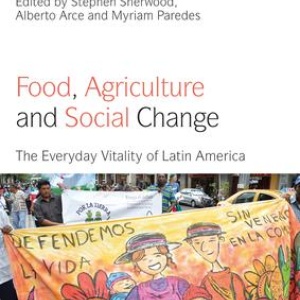
Through case studies in seven Latin American countries, this book looks at development and social change in food and agriculture across the region. It presents examples of how people diversely meet their food needs while confronting the region’s most pressing social, health and environmental concerns.
Abstract
In recent years, food studies scholarship has tended to focus on a number of increasingly abstract, largely unquestioned concepts with regard to how capital, markets and states organize and operate. This has led to a gulf between public policy and people’s realities with food as experienced in homes and on the streets. Through grounded case studies in seven Latin American countries, this book explores how development and social change in food and agriculture are fundamentally experiential, contingent and unpredictable.
In viewing development in food as a socio-political-material experience, the authors find new objects, intersubjectivities and associations. These reveal a multiplicity of processes, effects and affects largely absent in current academic literature and public policy debates. In their attention to the contingency and creativity found in households, neighbourhoods and social networks, as well as at the borders of human–nonhuman experience, the book explores how people diversely meet their food needs and passions while confronting the region’s most pressing social, health and environmental concerns.
Reference
Sherwood, S., Arce, A. and Paredes, M. (eds) (2017) Food, Agriculture and Social Change: The Everyday Vitality of Latin America. Routledge, London and New York.
For further details see here.







Post a new comment »